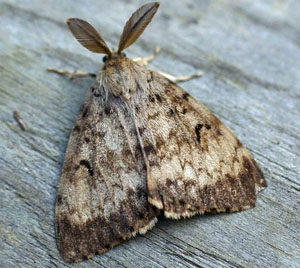ODA to spray for gypsy moths in NW Ohio
VW independent/submitted information
REYNOLDSBURG — The Ohio Department of Agriculture will soon begin aerial treatments designed to control the gypsy moth population in northwest Ohio. Treatments on 827 acres in Hancock, Hardin, Marion, Seneca, Van Wert, and Wyandot counties will begin in mid-May, as larva and leaf development reaches the optimal threshold for treatment.
Treatments are administered using a low-flying aircraft that fly just above treetops. High humidity, low temperature, and minimal wind are crucial for a successful application. Treatment will most likely take place during early morning hours.

The department will use Foray (Btk), a naturally occurring bacterium found in the soil that interferes with the caterpillars’ feeding cycles, and Mimic 2LV, an insecticide that imitates the natural insect molting hormone, thus initiating a premature and lethal molt in the gypsy moth larvae. These treatments are not toxic to humans, pets, birds or fish.
Ohioans can view maps of treatment blocks at www.agri.ohio.gov. Daily updates on treatment progress across the state are available on the website or by calling 614.387.0907 or 800.282.1955, extension 37, any time after 5 p.m.
Gypsy moths are invasive insects that defoliate over 300 species of trees and shrubs. In its caterpillar stage, the moth feeds on the leaves of trees and shrubs and is especially fond of oak. A healthy tree can usually withstand only two years of defoliation before it is permanently damaged or dies. In Ohio, 51 counties are currently under gypsy moth quarantine regulations.
The department uses three programs to manage the gypsy moth population in Ohio. The suppression program is used in counties where the pest is already established, but landowners voluntarily request treatment to help suppress populations. The second program, slow-the-spread, occurs in counties in front of the larger, advancing gypsy moth population. The third program is the eradication program, used in counties where isolated populations develop ahead of advancing moth populations due to human movement of the moth. Officials work to detect and control isolated populations to slow the overall advancement of the gypsy moth infestation.
For more information about the gypsy moth or for specific treatment locations, visit the above website.
POSTED: 05/11/16 at 7:50 am. FILED UNDER: News







